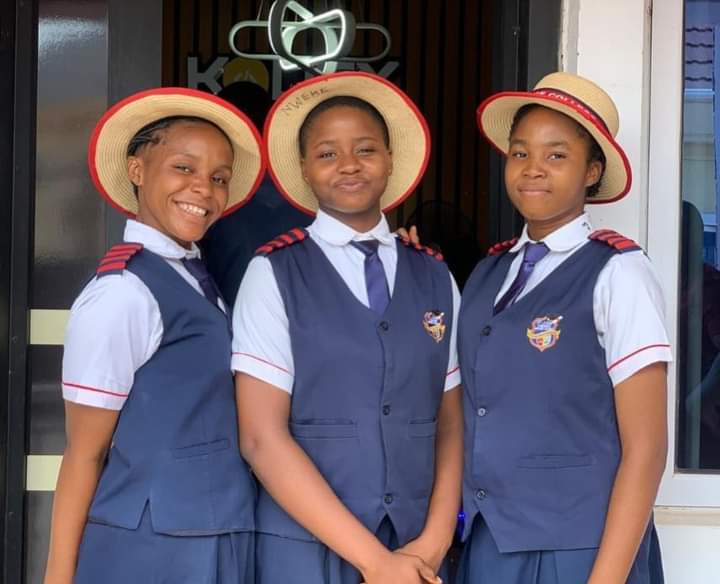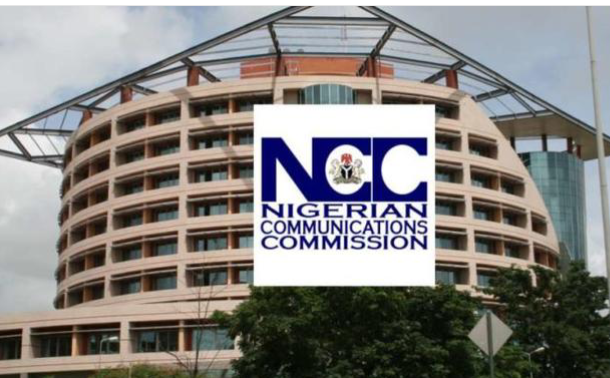Tech
NCS Launches Mobile Tracker For Customs Clearance


The Federal Government’s policy on ease of doing business receives a major boost as the Nigeria Customs Service is set to introduce Webb Tracker mobile Application and a simplified standard operating procedure for the use of scanners.
The mobile app enables any person that has access to the NICIS II to remotely validate any declaration/payment and more importantly the status of a particular consignment/vehicle. With this innovation, motorists and owners of other imported goods no longer have to wait for long period of time for field operatives to confirm the validity of their documents before letting them go.
This mobile app which can be installed in mobile devices (phones, tablets e.t.c) enables the use of the vehicle identification number to upload data concerning the type, make and model of all vehicles at the point of making declaration with a view to assigning value for the payment of appropriate Customs duty.
On the road, field operatives using this mobile application will be able to in real-time, validate any Customs declaration using the vehicle identification number (VIN) and the Customs control numbers to ascertain the correct status of vehicles and other containerized goods released or in transit.
This apart from removing acrimonies associated with enforcement activities on the highways will robustly facilitate free flow of compliant trade while checking illegal imports.
The simplified standard operating procedure provide clear guidelines on the usage of scanners at all entry and exit points in Nigeria.
The steps are:
All containers are Pre-Scanned as soon a they are discharged from vessel.
Declaration, Assessment and Payment is made by the declarant.
NICIS II Risk Engine allocates scanned containers to designated Image Analyst.
For Compliant Containers:
Compliant Containers are released from Customs Control.
Released Container is acknowledged and exited through the gate.
For Non-Compliant Containers:
At the end of each day, a list of suspected containers is forwarded to the Terminal Operator.
Terminal Operator positions them for physical examination on the request of the Declarant.
Officers on Recheck duty examine the suspected containers.
Examination is submitted to the Scanner Manager for further action.
Released Container is acknowledged and exited through the Gate.
While giving approval for the launch and implementation of these innovative trade facilitation tools, the CGC, Col. Hameed Ibrahim Ali (Rtd) expressed the hope that these tools will eliminate incumbrances being currently experienced by international trade actors in Nigeria. He calls on stakeholders to support the Service in its drive to deliver Customs best practices to the nation.
Tech
Anambra School Emerges Winner In National Girls In ICT Competition With Groundbreaking VR Technology


St. John Vianney Science College, Igbariam, used their virtual reality project to conquer the National Girls in ICT Competition 2024, claiming the national championship title yesterday!
The National Girls in ICT Competition, organized by the Federal Ministry of Communication, Innovation and Digital Economy, is a technology innovation competition for all girls in secondary schools across Nigeria.
Their innovative project, M-Tag VR, allows users to explore iconic landmarks like Zuma Rock and learn about fascinating cultural aspects of Nigerian tribes. The girls, Immaculate Ebube Ikegwuonu, Camilla Anyadike, and Nweke-Nonso Oluchi, mentored by their coach, John Onuigbo, triumphed over teams from all 36 states.
The girls’ talent shone brightly throughout the competition. They started at the state level where they aced the Anambra state competition, then proceeded to conquer the Southeastern regional championship, defeating teams from Ebonyi, Imo, Abia, and Enugu, to make it to the national finals.
Rivers and Lagos states secured the second and third-place positions, respectively.
Tech
Google To Delete Billions Of Browser Records To Settle ‘Incognito’ Lawsuit


CNN reported that Google will delete billions of data records as part of a settlement for a lawsuit that accused the tech giant of improperly tracking the web-browsing habits of users who thought they were browsing the internet privately.
The suit was originally filed in 2020 and accused Google of misrepresenting the kind of data it collects from users who browsed the internet via “Incognito” private browsing mode in Chrome. Google agreed to settle the suit late last year, but the terms of the settlement were first disclosed in a filing on Monday.
As part of the settlement, Google must delete “billions of data records” that reflect the private browsing activities of users in the class action suit, according to court documents filed Monday in San Francisco federal court.
Google will also update its disclosure to inform users about what data it collects each time a user initiates a private browsing session. Google has already started implementing these changes.
For the next five years, Google will also let private browsing users block third-party cookies as part of the settlement. Google also will no longer track people’s choices to browse the internet privately.
Tech
NIN-SIM Linkage: NCC Directs Telecommunication Operators To Bar Non-Compliant Subscribers


The Nigerian Communications Commission (NCC) has confirmed that it would not be reviewing its deadline to bar owners of more than four SIM cards whose SIM registration data failed to match their National Identity Number (NIN) data.
A source within the Commission explained that the Commission’s position was hinged on its objective to clean the country’s SIM ownership database, and ensure that criminals could not take advantage of having multiple unlinked SIMs to carry out their nefarious activities.
“We are not standing back on our decision. March 29th is sacrosanct. Our resolve is hinged on the need to close in on the chaos of untoward ownership of multiple SIM cards with unverified NIN details. We have instances where a single individual has over 10,000 lines linked to his NIN. In some cases, we have seen a single person with 1,000 lines, some 3,000 plus lines. What are they doing with these lines?
“From our interim findings, the owners of these lines did not purchase them for decent purposes or to undertake legitimate activities.
“We have given them enough time to make the decision of which of their lines they want to keep, and discard the others. They did not. All lines in this category with unverified NINs will be barred. They will be then expected to go to their operators and decide which of the lines they want to keep, as well as submit correct NIN details.
“Some people would say they want to use it for car trackers, or for IoTs, but provision has been made for these services already. They are not under the ‘Max-4 Rule.’
“Across the world, no country allows you to have 1,000 SIM cards to make calls or texts.”
The Max-4 Rule announced by the Federal Government in April 2021 provides that telecom subscribers cannot have more than four lines per mobile network operator.
The NCC has also provided Mobile Network Operators (MNOs) an extension till July 31st 2024 within which they are expected to verify all NINs submitted by subscribers with four (4) or less SIMs, as well as bar those whose NIN fail verification with NIMC.
An authoritative source within the Commission who is familiar with the matter stated that the Commission’s management arrived at the decision at a crucial meeting it held today to review requests from the major Mobile Network Operators requesting for extension for the verification of NINs submitted.
The source also stated that the Commission is mulling the idea to approve an online application solution for MNOs where their subscribers whose NIN verification failed due to biometric mismatch can update their records on the app, while existing subscribers can register additional lines.
-



 Transport4 days ago
Transport4 days agoFederal Government To Launch Out 2700 CNG Buses, Tricycles Ahead Of First anniversary Of Tinubu’s Administration
-



 News3 days ago
News3 days agoNigeria Has Secured $2.25B World Bank Loan With An Interest Rate Of 1% – Minister Of Finance
-



 News15 hours ago
News15 hours agoNiger State Prisoners Run From Facility After Rainstorm Brings Down Part Of Fencing
-



 Tech10 hours ago
Tech10 hours agoAnambra School Emerges Winner In National Girls In ICT Competition With Groundbreaking VR Technology
-



 News2 days ago
News2 days agoEFCC: Former Governor Of Kogi State, Yahaya Bello Fails To Show Up In Court, Says He Is Scared Of Arrest
-



 Finance2 days ago
Finance2 days agoGodwin Emefiele Disobeyed Direction Of Law With Intent To Harm The Public, He Printed ₦684.5M Using ₦18.9B Says EFCC in fresh charge
-



 Spotlight14 hours ago
Spotlight14 hours agoNigerian Woman Breaks Guinness World Record With 55-Hour Interview Marathon
-



 Politics4 hours ago
Politics4 hours agoEnugu State Government Flag Off Palliative Distribution In The State






